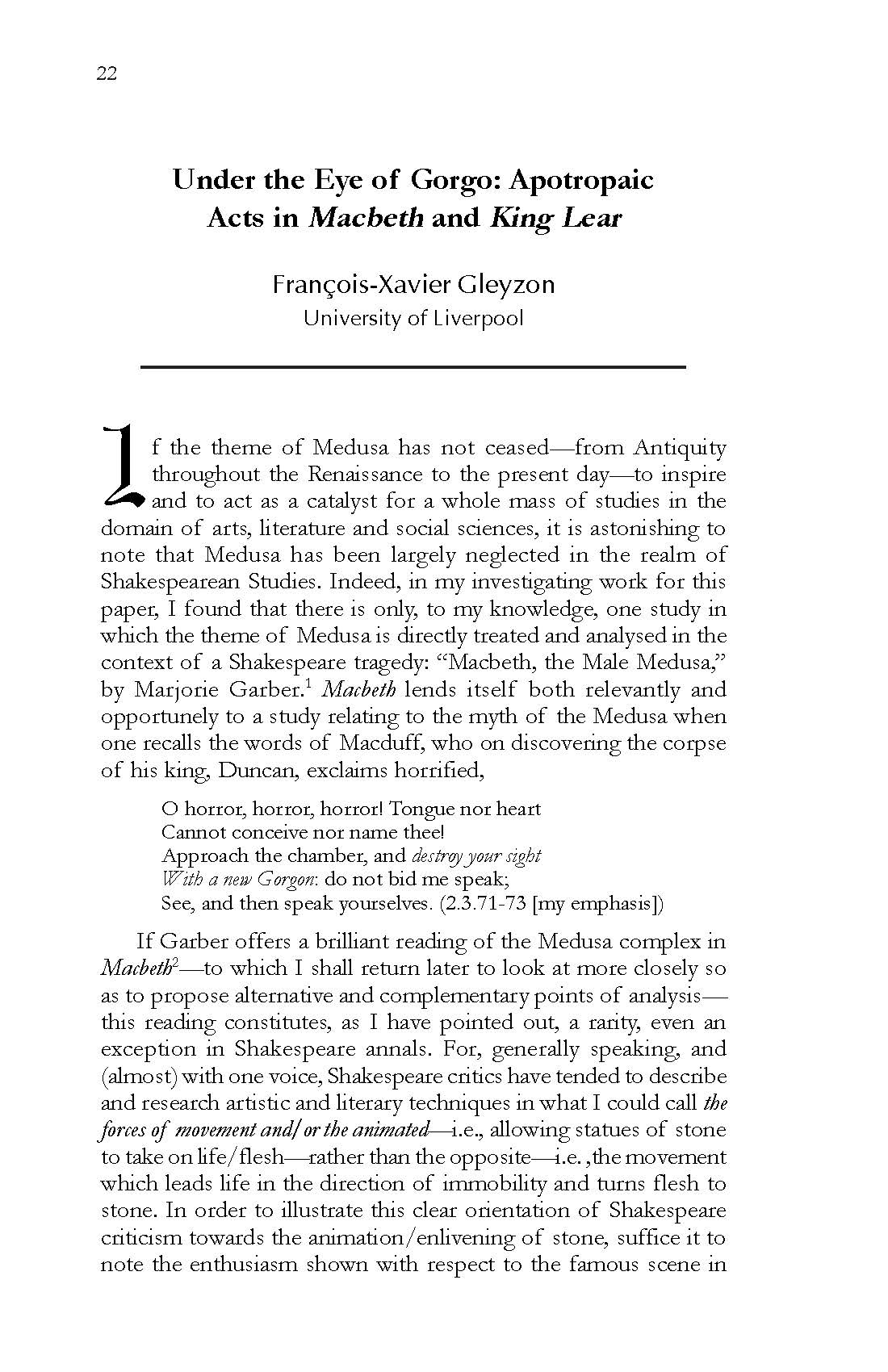Under the Eye of Gorgo: Apotropaic Acts in Macbeth and King Lear
Main Article Content
Abstract
If the theme of Medusa has not ceased—from Antiquity throughout the Renaissance to the present day—to inspire and to act as a catalyst for a whole mass of studies in the domain of arts, literature and social sciences, it is astonishing to note that Medusa has been largely neglected in the realm of Shakespearean Studies. Indeed, in my investigating work for this paper, I found that there is only, to my knowledge, one study in which the theme of Medusa is directly treated and analysed in the context of a Shakespeare tragedy: “Macbeth, the Male Medusa,” by Marjorie Garber.1 Macbeth lends itself both relevantly and opportunely to a study relating to the myth of the Medusa when one recalls the words of Macduff, who on discovering the corpse of his king, Duncan, exclaims horrified,
O horror, horror, horror! Tongue nor heart
Cannot conceive nor name thee!
Approach the chamber, and destroy your sight
With a new Gorgon: do not bid me speak;
See, and then speak yourselves. (2.3.71-73 [my emphasis])
